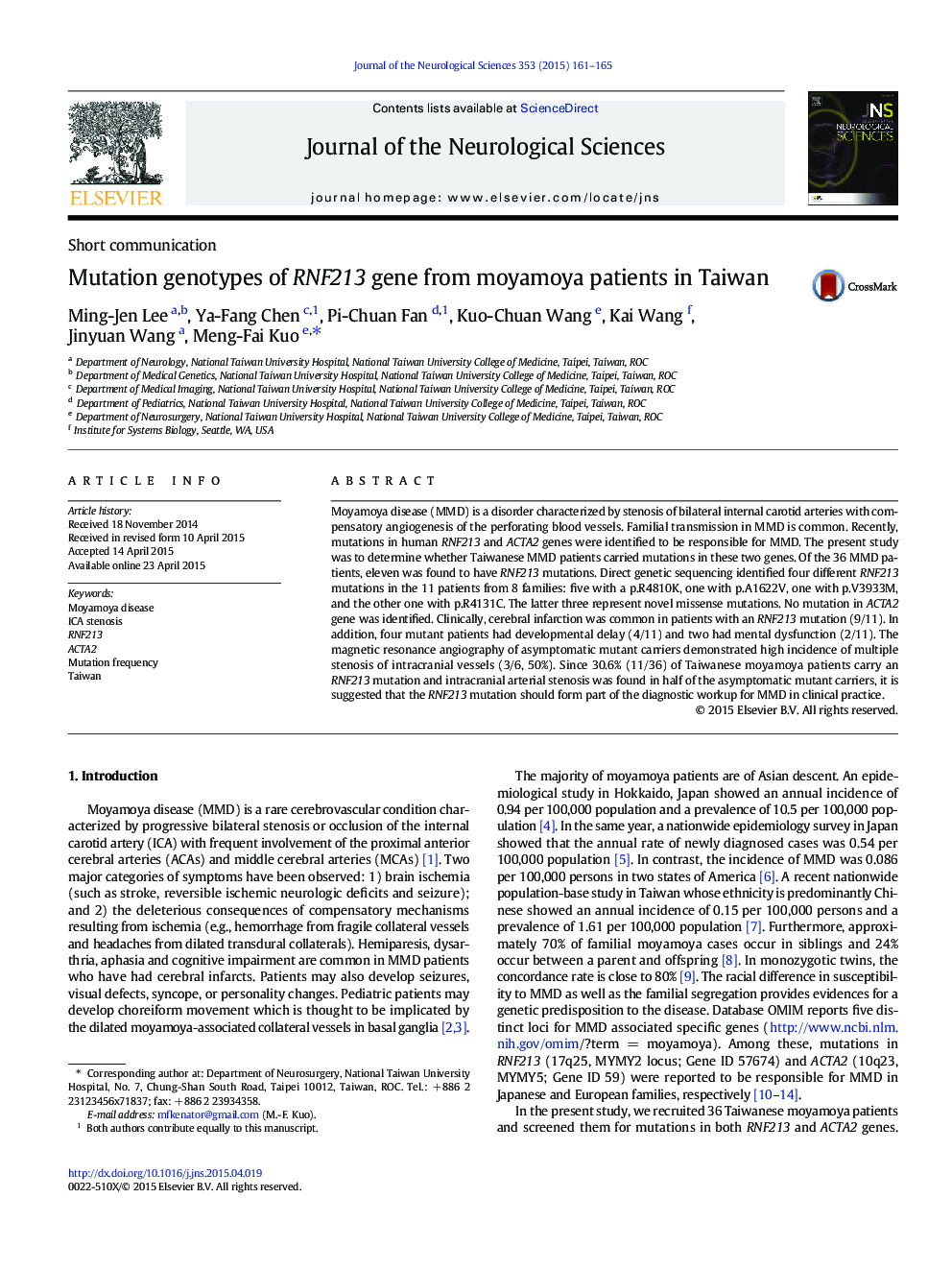| Article ID | Journal | Published Year | Pages | File Type |
|---|---|---|---|---|
| 8276155 | Journal of the Neurological Sciences | 2015 | 5 Pages |
Abstract
Moyamoya disease (MMD) is a disorder characterized by stenosis of bilateral internal carotid arteries with compensatory angiogenesis of the perforating blood vessels. Familial transmission in MMD is common. Recently, mutations in human RNF213 and ACTA2 genes were identified to be responsible for MMD. The present study was to determine whether Taiwanese MMD patients carried mutations in these two genes. Of the 36 MMD patients, eleven was found to have RNF213 mutations. Direct genetic sequencing identified four different RNF213 mutations in the 11 patients from 8 families: five with a p.R4810K, one with p.A1622V, one with p.V3933M, and the other one with p.R4131C. The latter three represent novel missense mutations. No mutation in ACTA2 gene was identified. Clinically, cerebral infarction was common in patients with an RNF213 mutation (9/11). In addition, four mutant patients had developmental delay (4/11) and two had mental dysfunction (2/11). The magnetic resonance angiography of asymptomatic mutant carriers demonstrated high incidence of multiple stenosis of intracranial vessels (3/6, 50%). Since 30.6% (11/36) of Taiwanese moyamoya patients carry an RNF213 mutation and intracranial arterial stenosis was found in half of the asymptomatic mutant carriers, it is suggested that the RNF213 mutation should form part of the diagnostic workup for MMD in clinical practice.
Related Topics
Life Sciences
Biochemistry, Genetics and Molecular Biology
Ageing
Authors
Ming-Jen Lee, Ya-Fang Chen, Pi-Chuan Fan, Kuo-Chuan Wang, Kai Wang, Jinyuan Wang, Meng-Fai Kuo,
